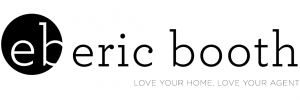First Time Homebuyers: Just How Much Can You Afford?
Buying a home is both exciting and stressful, especially for first-time homebuyers. In order to minimize that anxiety, it helps to do a bit of financial homework to determine just how much house you can actually afford.
The first step in determining your home buying budget is to evaluate your assets and liabilities. It is also important to pay close attention to your spending habits for those 3-6 months leading up to the start of your search.
Calculating your debt-to-income ratio and factoring in a down payment will give you a good ballpark estimate of what you can afford, in terms of the total cost of the home purchase, as well as the size of your monthly payment. There is no universal ratio that lenders abide by, but generally, they say around 30% of your gross monthly income should go toward your housing costs.
All cost that go beyond the simple price you pay for your house; they include such factors as:
- Principal
- Mortgage Interest
- Property Taxes
- Homeowners Insurance
This is known as the front-end ratio. The back-end ratio shows the portion of income that covers all other monthly debt obligations, such as auto loans, credit card payments, etc. This means if you have a hefty car note, or a lot of credit card debt, you won’t be able to afford as much in mortgage payments. Generally, lenders say your overall debt-to-income ratio should be somewhere around 40%.
Don’t forget to include the down payment in your calculations
Generally, the down payment is at least 10% of the home’s purchasing price. Homebuyers who put 20% or more as their down payment usually don’t have to pay for mortgage insurance, which lowers the monthly payment. However, one of the most common mistakes first time buyers make is depleting their savings to achieve this down payment or to pay for closing costs.
Once you have an idea of the monthly mortgage payment you can afford, you can estimate your overall budget. You won’t know your exact budget until you know what interest rate you will pay, but you can use a general rule to make an approximation. Assume an average six percent interest rate on a 30-year mortgage, and your payments will be around $650 for every $100,000 borrowed. Add the down payment to your maximum mortgage amount, and you will get a good idea of the most you can spend on a home.
Get prequalified for a mortgage
After you have finished your financial homework, it is time to get prequalified for a mortgage. Many first time buyers are hesitant to get prequalified because they are afraid they won’t qualify or will qualify for a loan amount smaller than expected. However, most sellers won’t entertain an offer if the potential buyer is not prequalified.
In some cases, a bank will offer you a loan for more house than you actually want to pay for. Just because they offer to lend you $350,000 doesn’t mean you really need to borrow that much. Some first-time homebuyers make this mistake, and end up with no money left over after paying their monthly mortgage payment.
Homebuying doesn’t begin by searching for a house. There is lot of preparation and calculation involved, but with a bit of diligence, you’ll be sitting comfortably in your new home, with a mortgage payment that does not stress you out.
Interested in purchasing your first home in Chicago? Contact me at (847) 226-8681 or ebooth@ericboothrealty.com to get started today.










